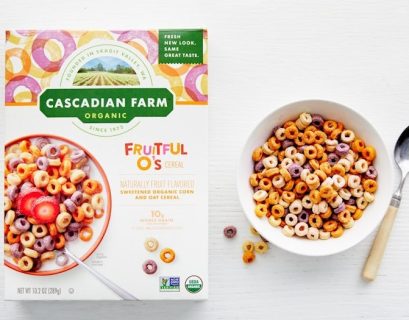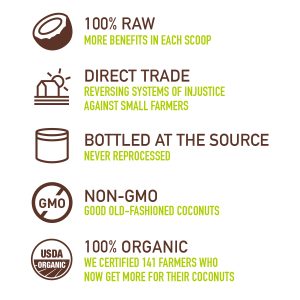In the realm of sustainable and ethically sourced foods, Patagonia Provisions has emerged as a beacon of environmental responsibility and culinary innovation. Born out of the ethos of outdoor apparel giant Patagonia, Patagonia Provisions extends the brand’s commitment to environmental stewardship to the realm of food. This comprehensive review delves into the origins, product offerings, sustainability practices, and overall consumer experience of Patagonia Provisions.
Roots in Responsible Business:
Patagonia Provisions is an offshoot of Patagonia, the renowned outdoor clothing and gear company founded by Yvon Chouinard in 1973. Inspired by the ethos of “Build the best product, cause no unnecessary harm, use business to inspire and implement solutions to the environmental crisis,” Patagonia Provisions was conceived as a natural extension of the company’s commitment to sustainability.
Product Range:
Patagonia Provisions offers a diverse range of sustainably sourced and minimally processed food products. The brand’s focus extends beyond merely providing nourishment; it emphasizes regenerative agriculture, responsible fishing practices, and the preservation of biodiversity. Here’s a glimpse into some key product categories:
1. Wild Sockeye Salmon:
Patagonia Provisions’ wild-caught sockeye salmon is a standout offering, sourced through selective harvest methods that prioritize the health of salmon populations and ecosystems. The salmon is traditionally smoked, delivering a rich flavor that reflects the pristine waters from which it originates.
2. Provisions Savory Seeds:
This unique blend of organic pumpkin seeds, almonds, and cashews is seasoned with organic tamari and sea salt. Packed with protein and essential nutrients, these savory seeds make for a satisfying snack while embodying Patagonia Provisions’ commitment to organic and responsibly sourced ingredients.
3. Organic Soups:
The brand offers a range of hearty, organic soups crafted with ingredients like green lentils, red bean chili, and tsampa soup. These ready-to-eat soups are a convenient and nourishing option for those seeking a quick and wholesome meal without compromising on quality.
4. Grains and Pastas:
Patagonia Provisions brings a selection of grains and pastas, including organic ancient grains like quinoa and green lentils. These products are not only versatile in the kitchen but also contribute to regenerative agriculture and biodiversity conservation.
5. Breakfast Grains:
For a wholesome start to the day, Patagonia Provisions offers breakfast grains like organic oatmeal and creamy grains with chia seeds. These breakfast options are a testament to the brand’s dedication to providing nourishing and sustainably sourced choices.
Environmental Stewardship:
1. Regenerative Agriculture:
At the core of Patagonia Provisions’ sustainability practices is a commitment to regenerative agriculture. The brand partners with farmers and producers who prioritize practices that enhance soil health, sequester carbon, and promote biodiversity. This approach aligns with the brand’s broader mission to contribute to a healthier planet.
2. Responsible Fishing Practices:
The sourcing of Patagonia Provisions’ wild sockeye salmon exemplifies the brand’s dedication to responsible fishing practices. By working with fishing communities that prioritize sustainable harvesting methods, the brand aims to support the health of marine ecosystems and the livelihoods of fishing communities.
3. Biodiversity Conservation:
Patagonia Provisions actively promotes biodiversity conservation by selecting ingredients and sourcing practices that contribute to ecosystem health. The brand recognizes the interconnectedness of food systems and ecosystems, emphasizing the importance of preserving biodiversity for the well-being of the planet.
4. Carbon Footprint Considerations:
Patagonia Provisions is committed to understanding and mitigating its carbon footprint. The brand conducts life cycle assessments to identify areas for improvement and actively seeks solutions to reduce its overall environmental impact, contributing to its broader goal of minimizing harm to the planet.
5. Packaging Innovation:
Acknowledging the environmental impact of packaging, Patagonia Provisions invests in innovative solutions. The brand explores compostable packaging options and seeks to minimize waste throughout its supply chain, reflecting a holistic approach to sustainability that extends from sourcing to packaging.
The Patagonia Provisions Experience:
1. Flavor and Culinary Excellence:
Patagonia Provisions distinguishes itself not only through its commitment to sustainability but also through the exceptional flavor and quality of its products. The brand’s culinary offerings are a testament to the belief that sustainable and responsibly sourced foods can also be a delight to the taste buds.
2. Convenience and Accessibility:
The convenience of Patagonia Provisions’ products adds to their appeal. The range includes ready-to-eat options that cater to individuals with busy lifestyles, offering a convenient and nourishing choice without sacrificing the brand’s commitment to sustainability.
3. Transparency and Traceability:
Patagonia Provisions is transparent about the sourcing of its ingredients and the impact of its products. The brand provides information on its website about the origins of each product, the farmers and producers involved, and the specific environmental considerations that guided sourcing decisions.
4. Educational Initiatives:
Beyond providing sustainably sourced foods, Patagonia Provisions engages in educational initiatives. The brand shares information about regenerative agriculture, responsible fishing, and biodiversity conservation, empowering consumers to make informed choices and become advocates for environmental stewardship.
5. Community Building:
Patagonia Provisions actively fosters a sense of community among its consumers. The brand’s website features stories about farmers, fishermen, and communities involved in the production of its provisions, creating a connection between consumers and the individuals behind the products.
Areas for Consideration:
While Patagonia Provisions has received widespread acclaim for its commitment to sustainability and culinary excellence, there are a few considerations for consumers:
1. Price Point:
The premium placed on sustainably sourced and minimally processed foods can translate to a higher price point. While this reflects the true cost of responsible sourcing, it may influence purchasing decisions for budget-conscious consumers.
2. Limited Availability in Certain Regions:
Patagonia Provisions’ products may not be universally available, especially in certain regions. Expanding distribution channels and availability could further enhance accessibility for a broader consumer base.
Conclusion:
Patagonia Provisions exemplifies a harmonious fusion of culinary craftsmanship and environmental responsibility. The brand’s commitment to regenerative agriculture, responsible fishing, biodiversity conservation, and carbon footprint reduction positions it as a trailblazer in the sustainable food space.
For consumers seeking not only exceptional flavor but also a deeper connection to the source of their food, Patagonia Provisions offers a compelling choice. The brand’s dedication to transparency, education, and community building creates a narrative that extends beyond the plate, fostering a shared commitment to a healthier planet.
In a world where conscious consumerism is gaining momentum, Patagonia Provisions stands as a testament to the idea that every meal can be an opportunity to contribute positively to the environment. As the brand continues to inspire mindful choices in the realm of food, it reinforces the notion that sustainability and culinary excellence can coexist, inviting consumers to savor not just the flavors but the stories and values embedded in every Patagonia Provisions product.

















